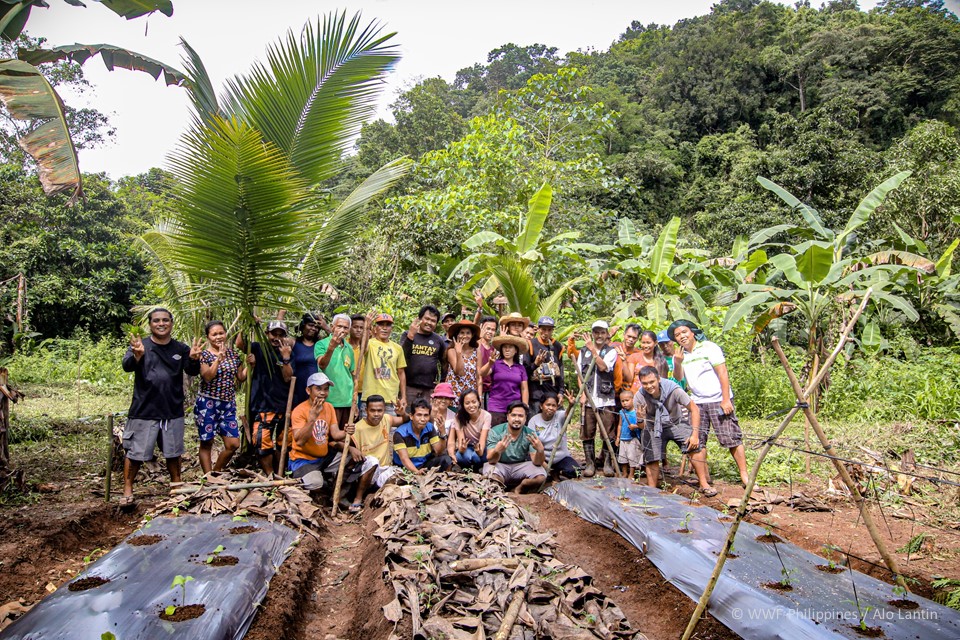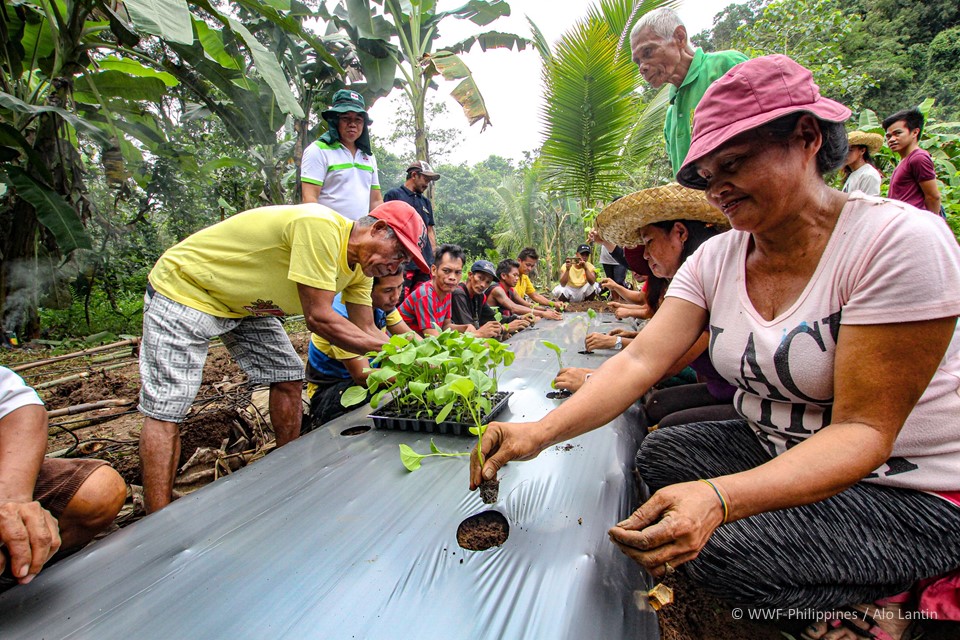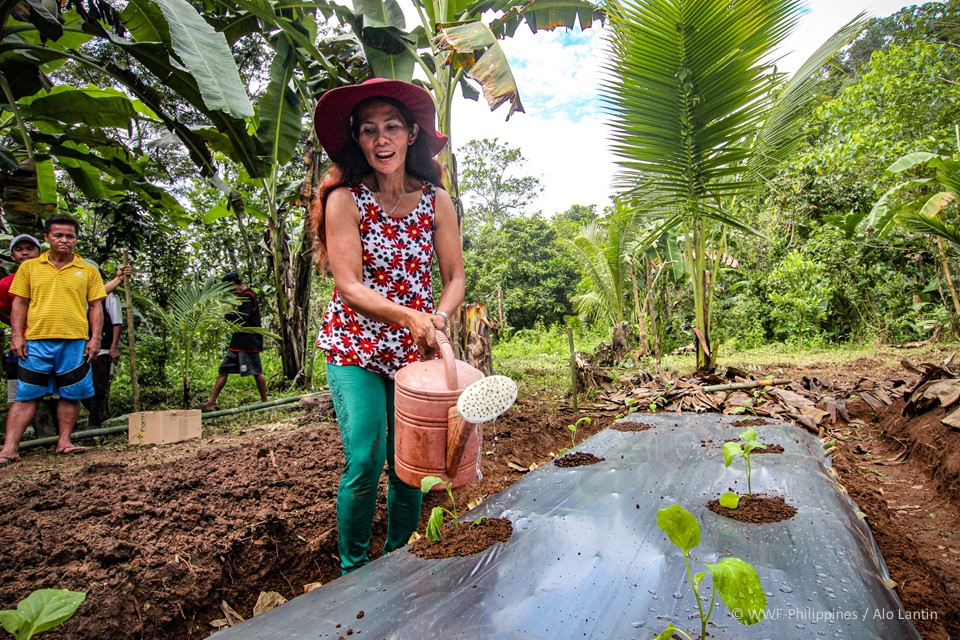WWF-Philippines Promotes Food Security for the Protection of Ipo Watershed
December 2019

Staff from WWF-Philippines and East-West Seed Foundation join members of the indigenous community living in Ipo Watershed, their demo farm ready in the foreground. Photograph © Alo Lantin / WWF-Philippines
Indigenous men and women till their land and water their new crops as representatives from the World Wide Fund for Nature (WWF) Philippines conducted a farming workshop in Ipo Watershed late last month.
WWF-Philippines, together with agriculture technology partner East-West Seed Foundation, has been promoting food security through urban and communal gardening in communities all across the country under the Sustainable Food Systems Program. From the 27th to the 28th of November, the organization held a workshop on household vegetable and container gardening with the community of Sapang Munti, Bulacan, in order to improve food security for those living in the forests of Ipo Watershed.
“The communities we work in are areas where malnutrition is rampant. Through our work, we address both food security and nutrition,” says East-West Seed Foundation Head Boysie Sabino. Through farming workshops, WWF-Philippines hopes to make nutritious food readily available for each household in its partner communities, while reducing their footprint on the environment.

A light drizzle falls on the surrounding rainforest as a member of the Sapang Munti community plants a seedling together with her neighbors. Photograph © Alo Lantin / WWF-Philippines
The workshop was conducted as part of WWF-Philippines Forests for Water program which strives for the conservation of Ipo Watershed in partnership with Coca-Cola Philippines. As the main source of water for 98% of Metro Manila, the conservation of Ipo Watershed is of top environmental priority. The Forests for Water program seeks to protect the rainforests of the area, promoting sustainable practices that cause little harm to the local environment.
“We want to help those who live in the forest to allocate their resources wisely. Instead of cutting down trees for food, or buying food outside, they can now produce their own crops. That way, we can better focus on taking care of the watershed,” explains WWF-Philippines Forester Jans Reyes. Food security was always a significant problem for the communities living in Ipo Watershed, explains Reyes. There had always been plans for the people of Sapang Munti to expand their capacity to grow their own food, and the recent workshop has taught them how to make their farming practices more sustainable.
“When you capacitate people, you capacitate the forest. You’re enabling people to help the forest and to help themselves,” continues Reyes.
By helping the indigenous peoples of Ipo Watershed to address their basic needs, WWF-Philippines is better equipping them to take care of their surrounding forests. “We’re excited for this new farm. The crops that we grow will one day bear fruit. Having our own household gardens will be a big help to all our families,” expresses Sofia Rafa, a housewife and a member of the Sapang Munti community. Herself an active member of her community, she is confident that her neighbors will put up their own household gardens over the coming months.

Sofia Rafa, a member of the Sapang Munti community, waters freshly planted seedlings. The people of Ipo Watershed hope that their fresh knowledge on household and container gardening will bring them together as they work for both food security and the conservation of their forests. Photograph © Alo Lantin / WWF-Philippines
“None of us could put this small farm up and take care of it by ourselves alone. What we really need here is our community. It makes me happy seeing all of us come together like this,” adds Rafa. Food security helps bring our communities together as they do their part to conserve our natural resources. Support WWF-Philippines, and help us ensure that every Filipino gets enough to eat.
For more information, please contact:
Mr. Paolo Pagaduan
Project Manager, Forests for Water Program
ppagaduan@wwf.org.ph
Mr. Muneer Hinay
Project Manager, Sustainable Food Systems Program
mhinay@wwf.org.ph
Ms. Pam Luber
Communications Manager
pluber@wwf.org.ph
